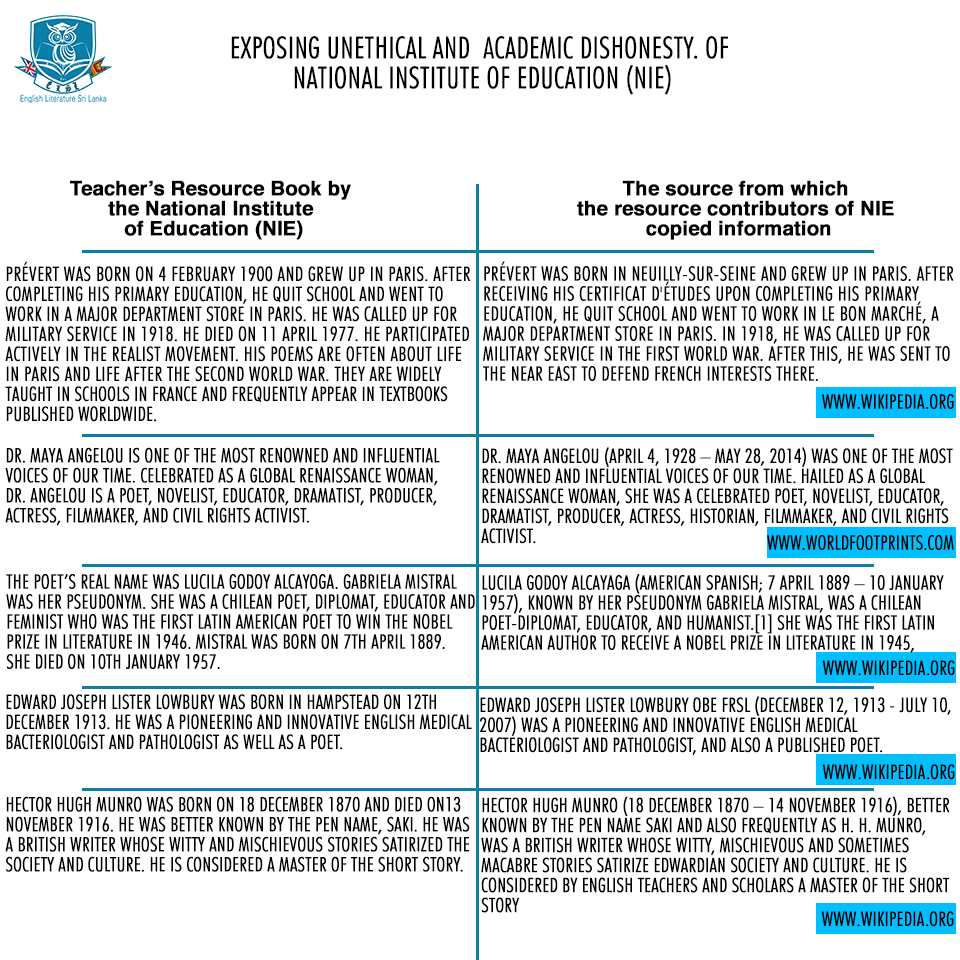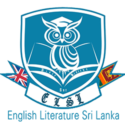Exposing Plagiarism and Copyright Violation - A Dark Stain on Sri Lanka's Education System

In a shocking revelation, it has come to light that the Department of English, National Institute of Education, Sri Lanka, has released a Teacher’s Resource Book titled “Appreciation of English Literary Texts” that contains plagiarised information from unreliable sources. This blatant act of intellectual theft not only undermines the credibility of the education system but also sets a detrimental example for both students and teachers. By exposing the lack of original content, copyright violations, and the subsequent impact on English Literature standards, we shed light on a corrupt educational practise that has remained unknown to teachers across the country.
Lack of Reliability
The Teacher’s Resource Book, published by the National Institute of Education, raises serious concerns about its reliability. The book has been found to plagiarise information directly from unreliable sources such as Wikipedia. By relying on an openly editable platform like Wikipedia, the NIE has failed to ensure accuracy and authenticity in the content provided to teachers. This compromises the educational value of the resource book and calls into question the competency and diligence of those responsible for its creation.
Copyright Infringement
Beyond the issue of reliability, the NIE is guilty of copyright violations. The Teacher’s Resource Book has been found to steal content from numerous websites that produce original and copyrighted material. By failing to acknowledge the sources and seek permission, the NIE not only disrespects the intellectual property of others but also sets a terrible example for students and teachers. This blatant disregard for copyright laws undermines the principles of academic integrity and ethical conduct that should be upheld within the education system.
Lack of Original Content and Misleading Claims
The Teacher’s Resource Book places a significant emphasis on the qualifications and names of resource persons involved in its creation. However, upon closer examination, it becomes apparent that the book lacks original content. Instead of providing valuable insights and analysis, it heavily relies on copied material. This raises doubts about the expertise and competence of the individuals responsible for producing the resource book. The NIE’s failure to deliver on its promises of original content diminishes the educational value of the book and calls into question the institution’s commitment to academic excellence.
Negative Message to Students and Teachers
The ramifications of the Teacher’s Resource Book’s unethical practises extend beyond the immediate concerns of plagiarism and copyright violations. By perpetuating a culture of intellectual dishonesty, the NIE undermines educational standards in the subject of English Literature. Students who rely on these resources are exposed to inaccurate information, hindering their intellectual growth and critical thinking skills. Additionally, teachers who implement these corrupt educational practises unknowingly contribute to the perpetuation of the problem. The lack of awareness among teachers regarding the compromised standards imposed by the NIE reinforces the cycle of educational corruption.
Diminishing Standards in English Literature
The publication and distribution of a teacher’s resource book that heavily relies on plagiarised content significantly diminish the standards of English Literature education in Sri Lanka. By failing to provide accurate, well-researched, and original materials, the Department of English compromises the quality of instruction and impedes students’ overall comprehension and appreciation of literary texts. This detrimental impact not only affects the current generation of students but also has far-reaching consequences for the development of literary skills and academic excellence in the country.
In conclusion, the Teacher’s Resource Book published by the National Institute of Education in Sri Lanka exhibits a lack of reliability, copyright violations, and the absence of original content, which subsequently reduces the standards of English Literature education. The impact of these practises is far-reaching, negatively affecting both students and teachers. It is imperative that the NIE take immediate action to rectify these issues, restore the integrity of education, and foster a culture of academic honesty and originality. Only through such measures can Sri Lanka’s education system provide a solid and ethically sound foundation for its students.
